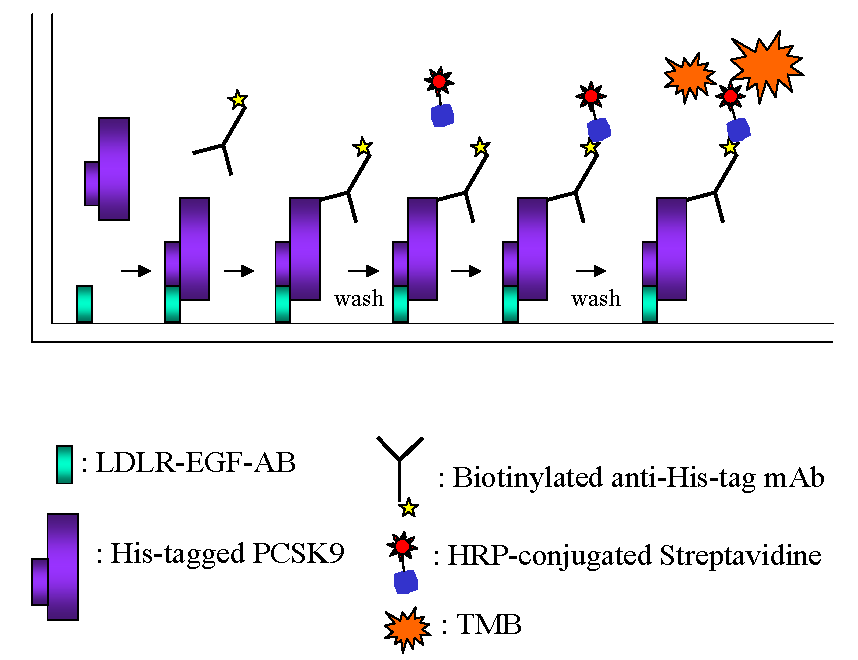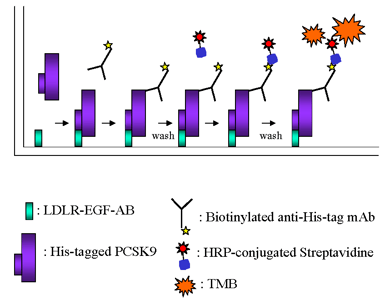Published by Deane Buckley on

Please Note: MBL International will be shutting down its operations effective December 31, 2024. Distribution of MBL products in the United States will be transferred to Cosmo Bio US on January 1st while European Distributors will remain unchanged. For any US inquiries regarding orders or support during this transition, reach out to Cosmo Bio: https://www.cosmobiousa.com/. For Non-US inquiries reach out to MBL in Japan: https://www.mblbio.com/.
Published by Deane Buckley on Jun 8, 2015 11:00:00 AM


Figure: Schematic representation of PCSK9 Binding Assay Kit which can be used to screen inhibitors of PCSK9 binding to the LDL receptor.
As discussed in a previous blog post, inhibiting PCSK9 from binding to the LDL receptor results in lower LDL cholesterol levels in the bloodstream. Research on PCSK9 has explored how it can be targeted in treatments for hypercholesterolemia (high cholesterol) and other cardiovascular diseases1.
This blog post will catch you up on the two biggest areas of research into treatments for high cholesterol that target PCSK9. And why there is so much news coverage. http://www.fiercebiotech.com/tags/pcsk9-drugs
Monoclonal Antibodies
Antibodies are proteins that can specifically bind to another protein called an antigen. Many antibodies bind to antigens to target them for destruction. Monoclonal antibodies are antibodies that are derived from an identical cell line2. When PCSK9 is bound by a monoclonal antibody, PCSK9 cannot bind the LDL receptor3. The inhibition of PCSK9 from binding to LDL receptors results in an increase in the number of LDL receptors. Consequently, the level of LDL cholesterol in the bloodstream is lowered.
siRNA
RNA can be divided into two types: coding and non-coding RNA. Coding RNA, also termed mRNA, contains the genetic information for a protein to be produced. siRNA is a type of non-coding RNA that can bind to mRNA and prevent the protein specific to that mRNA from being produced4. The use of a siRNA specific to the mRNA that codes for PCSK9 is being explored as a way to lower PCSK9 production5. By lowering PCSK9 production, the level of cholesterol in the bloodstream can be lowered.
MBL International offers a variety of PCSK9 products including PCSK9 antibodies and PCSK9 ELISA kits. With our PCSK9 ELISA kits, you will be able to measure levels of PCSK9 and further your research into the regulation of cholesterol.
4. Tang G. siRNA and miRNA: an insight into RISCs. Trends Biochem Sci. 2005;30(2):106-14.